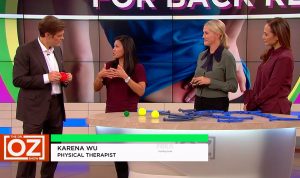 ActiveCare Physical Therapy, PC
ActiveCare Physical Therapy, PC
29 West 38th Street
Suite 601
New York, NY 10018

Volleyball Shoulder Injuries: Causes, Prevention, and Treatment
In this post, we’ll explore the causes of volleyball shoulder injuries, strategies for prevention, and the role of physical therapy in treatment. Volleyball is an exhilarating and physically demanding sport that requires agility, power, and precise coordination. While it’s a fantastic way to stay active and enjoy camaraderie with teammates, volleyball can also put players at risk for various injuries, particularly in the shoulders. Shoulder injuries are quite common among volleyball players due to the repetitive overhead motions involved in serving, spiking, and blocking.
Common Causes of Volleyball Shoulder Injuries
Volleyball shoulder injuries can result from various factors, including:
1. Overuse
Repetitive overhead movements can strain the shoulder muscles and tendons, leading to overuse injuries like tendinitis and bursitis.
2. Poor Technique
Incorrect serving, spiking, or blocking techniques can place excessive stress on the shoulder joint and muscles, increasing the risk of injury.
3. Muscle Imbalances
Weakness or imbalances in the shoulder muscles can affect stability and lead to injuries.
4. Fatigue
Fatigued muscles are more susceptible to injuries. Long volleyball matches or rigorous training sessions can contribute to shoulder issues.
5. Lack of Warm-up and Stretching
Failing to properly warm up and stretch before playing can leave the shoulder muscles tight and prone to injury.
Preventing Volleyball Shoulder Injuries
Prevention is key when it comes to shoulder injuries in volleyball. Here are some strategies to reduce the risk:
1. Proper Technique
Work with a qualified coach to ensure your serving, spiking, and blocking techniques are correct to minimize stress on the shoulder.
2. Strength and Conditioning
Incorporate shoulder-specific strength training exercises into your fitness routine to build muscle strength and stability.
3. Warm-up and Stretch
Always warm up before playing and include dynamic stretching exercises to prepare your shoulder muscles.
4. Rest and Recovery
Allow your body adequate time to recover between matches or training sessions. Fatigue increases injury risk.
5. Listen to Your Body
Pay attention to any signs of discomfort or pain in your shoulders. Rest and seek medical attention if needed.
Treatment of Volleyball Shoulder Injuries
Shoulder injuries should be addressed promptly to prevent further damage and expedite recovery. Treatment may include:
1. Rest
Resting the affected shoulder is essential to allow it to heal properly.
2. Physical Therapy
Physical therapy can help restore strength, flexibility, and range of motion in the shoulder. Therapists use various techniques, exercises, and modalities to facilitate recovery.
3. Anti-Inflammatory Medications
Non-steroidal anti-inflammatory drugs (NSAIDs) may be prescribed to reduce pain and inflammation.
4. Injections
In some cases, corticosteroid injections may be administered to alleviate pain and inflammation.
5. Surgery
Surgery may be necessary for severe shoulder injuries, such as rotator cuff tears or labral tears.
How Physical Therapy Can Help
Physical therapy plays a crucial role in the recovery process for volleyball shoulder injuries. A physical therapist will create a personalized rehabilitation plan tailored to your specific injury and needs. This plan may include:
1. Range of Motion Exercises
Gentle exercises to improve shoulder flexibility and mobility.
2. Strengthening Exercises
Targeted exercises to rebuild and strengthen the shoulder muscles.
3. Manual Therapy
Hands-on techniques to alleviate pain, improve circulation, and enhance tissue healing.
4. Functional Training
Training to regain functional strength and stability for volleyball-specific movements.
5. Injury Prevention Strategies
Education on proper techniques, warm-up routines, and exercises to prevent future injuries.
Conclusion
Volleyball shoulder injuries are a common occurrence among players, but with the right prevention strategies and timely treatment, they can be effectively managed and overcome. If you’ve experienced a shoulder injury while playing volleyball, consider seeking the expertise of a physical therapist, such as those at ActiveCare Physical Therapy™. Our team can provide specialized care and guidance to help you return to the sport you love safely and with confidence.
Dr. Karena Wu, owner of ActiveCare PT is the AVP Medical Director and Alexandra Corinaldesi, PT is a seasoned volleyball player. She was a libero for indoor volleyball! Our team has the background and experience to provide specialized care and guidance to help you return to the sport you love safely and with confidence.
Contact Information
ActiveCare Physical Therapy™
29 West 38th Street, Suite 601
New York, NY 10018
Phone: (212) 777-4374
Email: staff@bestptnyc.com
Website: https://activecarephysicaltherapy.com/
